Imagine you’re working for a community organisation. There’s been a problem for many years with people going hungry and an unequal distribution of food. You’ve hired someone to fix it and given them one year to turn things around and develop a plan to feed the community while having a positive impact on the environment. The year comes to an end and, reviewing their work, you find that, far from supporting the community, their solution is fragile, unstable and is having a devastating effect on the local environment. When questioned, their response is that all the reviews are wrong, their system is the only possible system and that’s that. Do you think you’d rehire this person?
It’s a pretty obvious no, and yet this is almost exactly what is happening right now. But it’s not just one community that is being affected, it’s the whole world and the system that’s causing this destruction hasn’t had just one year to prove that it works. It’s had centuries. Meat and dairy have been the dominant part of a Western diet for a long time now, with increasing industrialisation following WW2 giving us the food system we are used to today. Right now, animal farming contributes at least 18% of global emissions, 70% of agricultural emissions and up to 80% of global deforestation. Even with all this, these industries fail to be profitable, with £1.5 billion of government subsidies coming straight out of taxpayers pockets and into those of livestock farmers. This industry was entrusted with the job of feeding the world. It’s failing. So why is there so much resistance to building something new?
A Deceptively Simple Solution
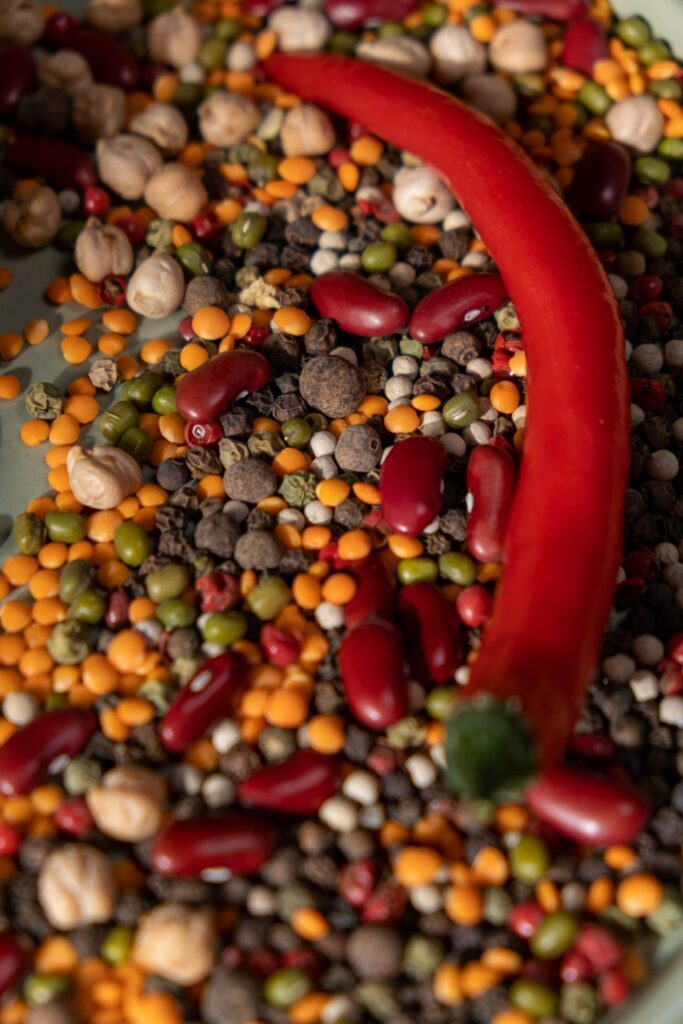
In recent years it has felt like there has been a shift, with campaigns for reducing the amount of meat and dairy we consume becoming more common. With reports like the 2019 EAT Lancet report which called for a 90% reduction in meat and dairy consumption as well as documentaries such as Cowspiracy and Seaspiracy, the recognition that what we eat impacts the planet has gained mainstream acceptance. A 2021 poll of 2,095 UK adults run by the ‘Eating Better Alliance’ found that 21% of respondents were eating less meat than a year ago, with 38% doing so because of carbon emissions and 37% because of other environmental concerns. In the face of a changing industry, however, we have seen a new story being told by the meat industry, that we can keep our current food system and focus on eating less meat, but better quality.
For many people, this was the ideal answer. The idea that they didn’t have to drastically change our lifestyle or eating habits but could also have a neutral, or even positive effect on the planet while doing so. Yet, when you dig a little bit deeper into what the industries are telling us, some holes start to form.
Is Less But Better Enough?
Before we answer this question, it helps to look at a completely different industry and investigate how it dealt with rising information that was saying their product may be causing harm: the tobacco industry. In the book Merchants of Doubt, Naomi Oreskes and Erik M. Conway show how the big businesses behind cigarettes developed a playbook for dodging the science that showed that the product they were selling was killing people. This formula has gone on to be used to talk about everything from global warming to pesticides and, more recently, animal agriculture. The basic tactic is, cast doubt on the science through paid ‘experts’ and false claims and spark controversy to derail the conversation from what the harm that is being caused.
It can be hard to believe but by looking at the industries’ own messaging we can quickly find examples of where meat, dairy and fishing are already doing this. And they all tell one story: that we can fix the problems of the industry by eating less and ‘better’ animal products.
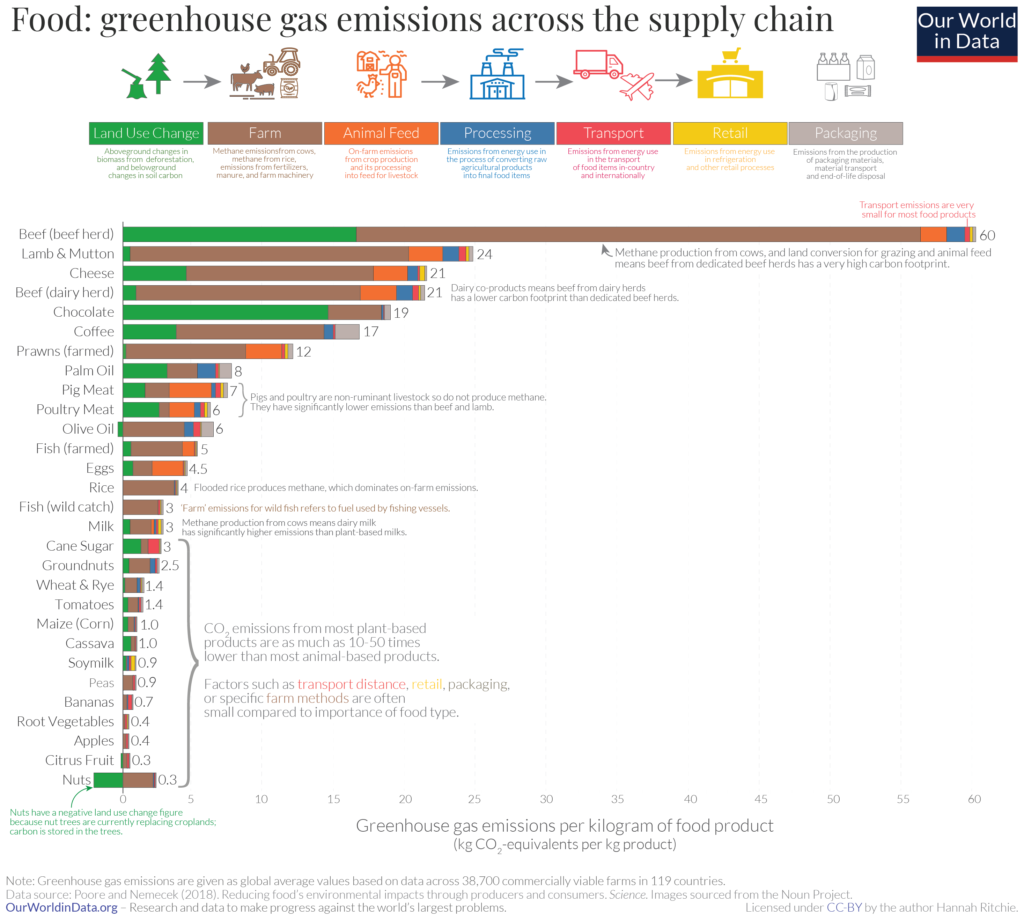
They bring up food miles and promote buying locally sourced meat and dairy whenever questions around the climate impact of animal products are raised. While the idea of buying local in and of itself is a positive one, the reality is that transport is an extremely small part of food emissions, making up less than 10% and as low as 0.5% of GHG emissions when it comes to animal products’ contribution to emissions. So essentially, even if all animal products consumed were locally sourced, they would still be contributing far higher emissions than plant-based products.
They say that switching to grass-fed systems for cows and sheep will be better for the environment than intensive farming and even plant-based options. If we look into this though, we find that the opposite is the case. Research shows grass-fed systems produce more emissions than intensive farming, while also using more land! On top of that, it would take a rainforest three-quarters of the size of South America to sequester the carbon produced by livestock.
Let’s not forget that every year in the UK approximately 2.6 million cattle, 10 million pigs, 14.5 million sheep and lambs, 80 million fish and 950 million birds are slaughtered for human consumption. It’s pretty clear that a food system where no one has to die is a better one.
They say that there is no other option and that this food system is the only one that works. But we know that isn’t true.
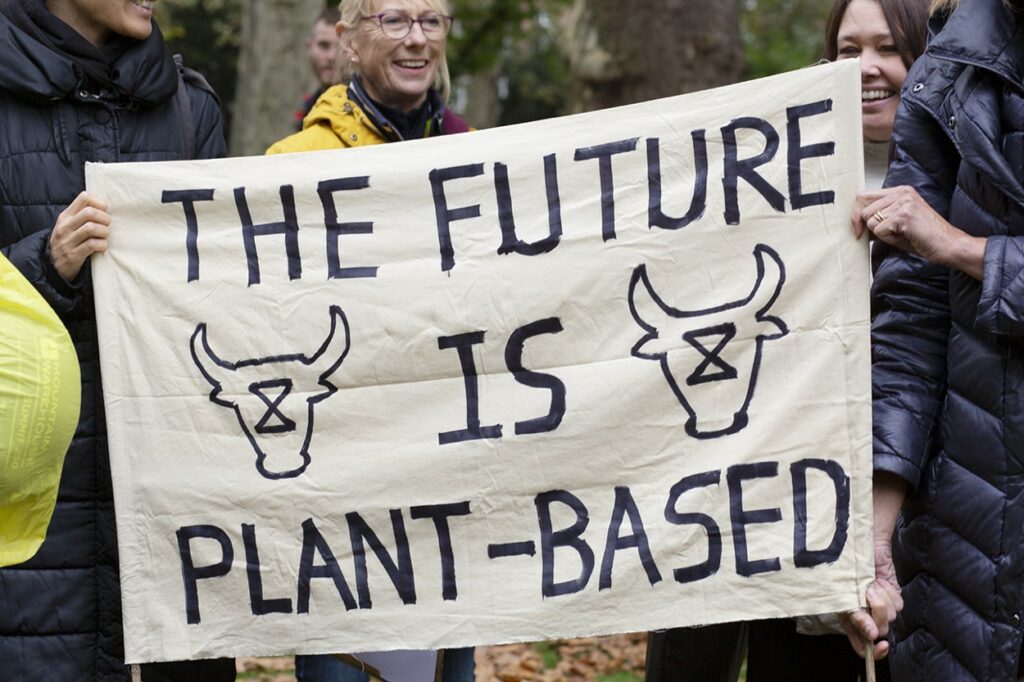
A Plant-Based Food System
With more and more evidence showing us that we need to change what we eat to help the planet heal, it seems obvious that we need a big change and that it’s a change that can’t just be achieved through individuals making small shifts to their diet. The whole system is set up in a way that harms the planet. Luckily though, we have an alternative which would take destruction off the menu.
A study from Oxford University that looked into the viability of a plant-based food system showed that if we were to convert all the land currently used to graze animals to natural vegetation it would remove the equivalent of 15% of the world’s total GHG emissions. Only a small fraction of pasture land would be needed to grow food crops to replace the lost beef. Another report showed that if we were to shift to a plant-based food system, food-related emissions would drop by 70% by 2050, saving £440 billion in the process.
But it wouldn’t just mean less carbon and more wild spaces. A plant-based food system is a system of abundant and affordable food as plant-based food is not only better for the planet, it also takes far less land to produce and is rich in variety, culture and flavour. Although this world may feel far away, it is already happening. Organisations such as the UK-based Refarm’d are working with farmers to transition from a struggling dairy industry into sustainable and profitable oat milk farming while the Good Food Institute is supporting transitions to pulse farming.
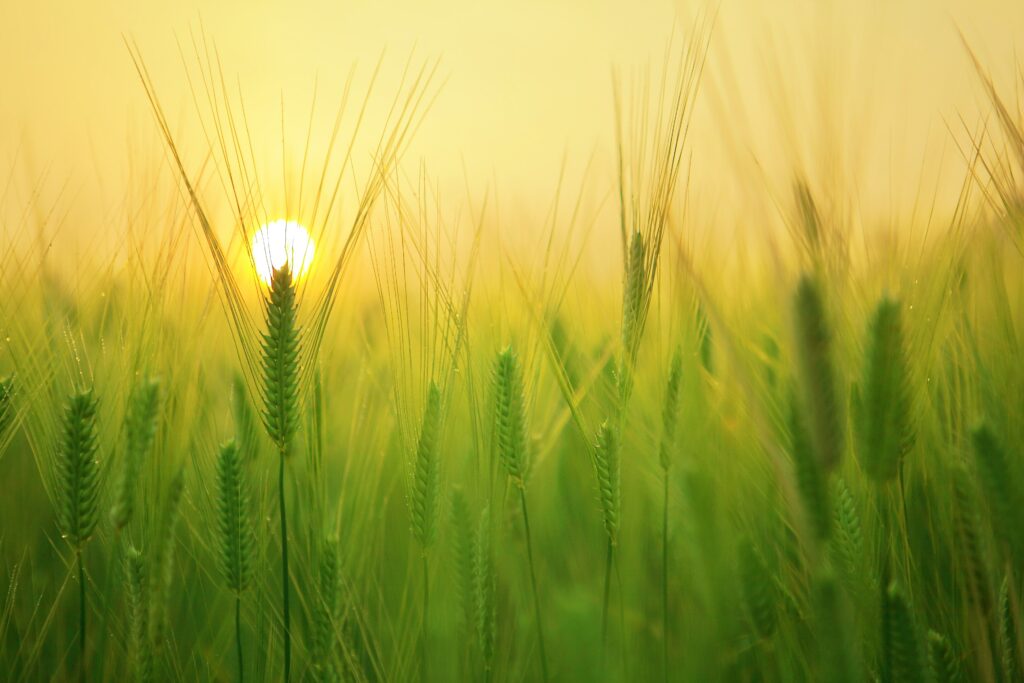
Conclusion – Meat and Dairy is Bankrupt
With a plant-based food system we can feed the world, provide much needed green jobs and build a world where humans and animals alike are treated with respect and dignity and have access to an abundance of food and choice. Urgent change is needed but we have an alternative that is just and fair for everyone. All we need to do is work together and achieve it.
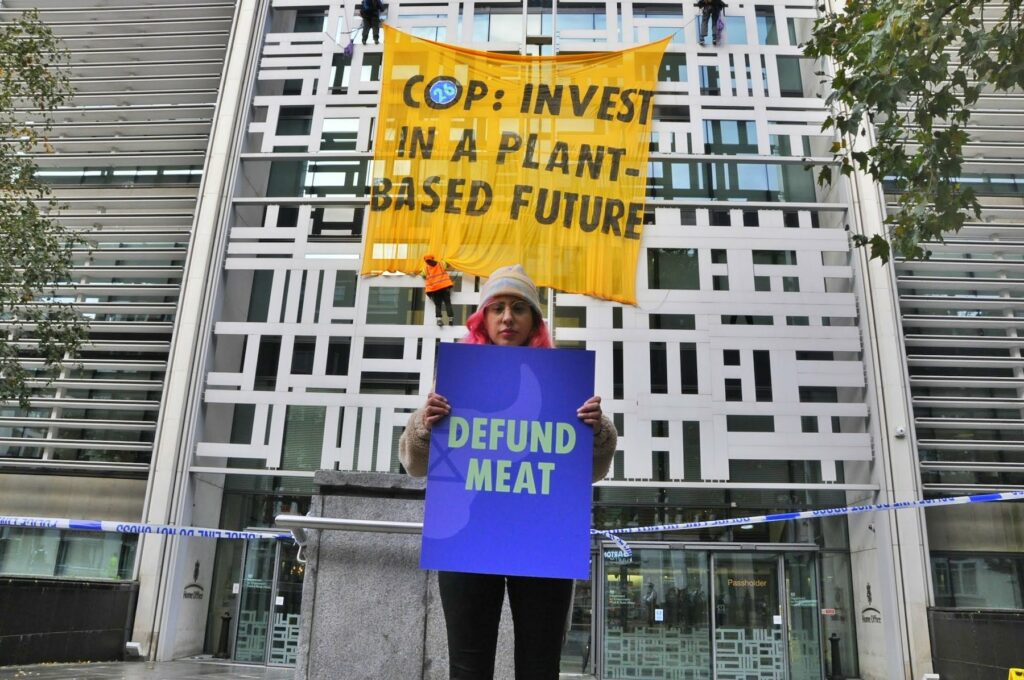

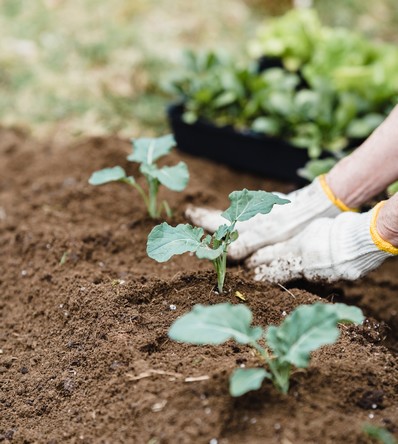
2 thoughts on “Doubt and Lies: the tactics of a struggling meat and dairy industry and why we won’t fall for them”
Comments are closed.